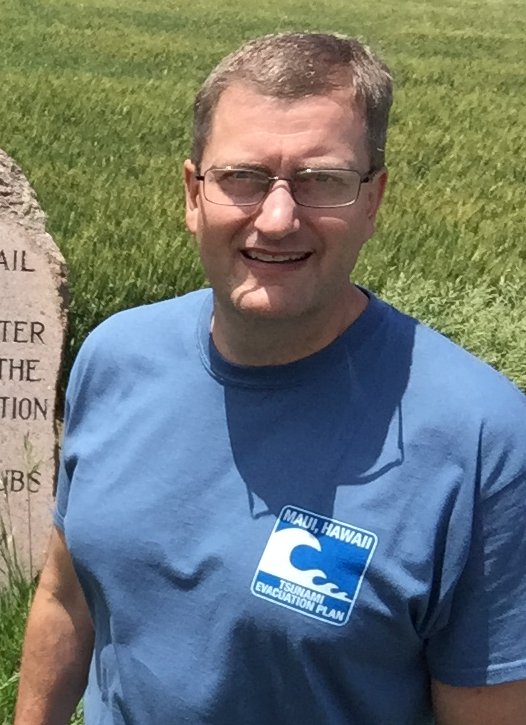
A Pacific storm is bringing areas of low elevation rain, moderate to heavy mountain snow, and high winds to the Northwest. Strong Santa Ana winds and very dry conditions are producing elevated to critical fire weather conditions in southern California. Isolated strong to severe thunderstorms are possible through early Wednesday morning across parts of northeast Texas into western Tennessee. Read More >
1. How did you become interested in meteorology? 
I became interested in meteorology at a young age when I was growing up on my family's dairy farm in eastern South Dakota. Weather affected our operations in many ways, and this continually sparked my interest to learn more about the weather.
2. What led you to a career in the National Weather Service (NWS)?
My parents gave me a NOAA Weather Radio (NWR) when I was in grade school. Not having the Internet or The Weather Channel at that time, the NWR was my only outlet to receive detailed weather information. I listened to the NWR all the time, and actually broke the antenna trying to get better reception (we lived about 30 miles from Sioux Falls, so the reception was poor at times). That experience of listening to the NWR and the NWS meteorologists convinced me that I wanted to work for the NWS.
3. What is it about the NWS that makes you want to work here?
The NWS offers a lot of opportunities to work with all kinds of interesting weather (e.g., summer, winter, fire, tropical). Moreover, I really enjoy that we can participate in outreach, training, and research—in addition to our regular forecasting and warning duties. The job never gets boring, especially here in western South Dakota. In addition, I've had the pleasure to work with a lot of great and talented people, which really makes the NWS an enjoyable place to be.
4. What advice do you have for someone who wants to become a Science and Operations Officer (SOO)?
First, I would recommend at least a Master's degree in meteorology; this will help you prepare for the research tasks that are required. Second, a strong background in computer science and programming is needed because meteorology involves developing applications to interpret and view weather information. Third, you will need strong communication skills (both speaking and writing) as this is critical when training others; you also may be presenting and publishing your research for the larger meteorological community. Finally, I think it is critical to have a strong passion for meteorology in order to excel in this position.
5. How did you end up in Rapid City?
I narrowed my choices for college down to Iowa State and the SD School of Mines and Technology (SDSMT). Given SDSMT's reputation, along with in-state tuition rates, I opted for SDSMT. Fortunately, as soon as I graduated from SDSMT in December 1993 with my Master's degree, a position opened up at the NWS in Rapid City. This has been such a great place to work that I never left, and have been able to advance my career while staying here in Rapid City.
6. What is the most memorable weather event you've experienced?
I've had a lot of memorable weather events, so this is a tough question. However, if I am pinned to one event, I would pick the time when I was around 16 years old and a thunderstorm developed rapidly right over our farm. We received 2" of rain in 20 minutes, which is the heaviest rain rate I've ever experienced. I kept running back and forth to various rooms in our house, and at one point when I was looking out the window, lightning struck a tree about 30 yards from our house. The flash was amazingly bright and the thunder immediately boomed, shaking my body and our house. I saw wood go flying up into the air as the lightning struck the tree, and within moments a large branch fell in front of me right outside the window. There also was a smaller forked branch to the lightning that I caught out of the corner of my eye. After the storm was over and I went outside I noticed smoldering on our big red barn, which the forked branch hit at the same time that the main branch struck the tree. Fortunately, the barn never caught fire; we inspected the burned area and replaced a few boards and all was fine.
7. What are your interests outside of work?
I like spending time with my family, hiking in the Black Hills, storm chasing across the central U.S. in the spring, and working on the family farm in eastern South Dakota in the fall.
8. Where do you see yourself in ten years?
Given that I'm nearly 50 years old, I very well could be retired in 10 years, but I would remain active in the field of meteorology. Whatever the case, it's likely that I still will be living in the Rapid City area.